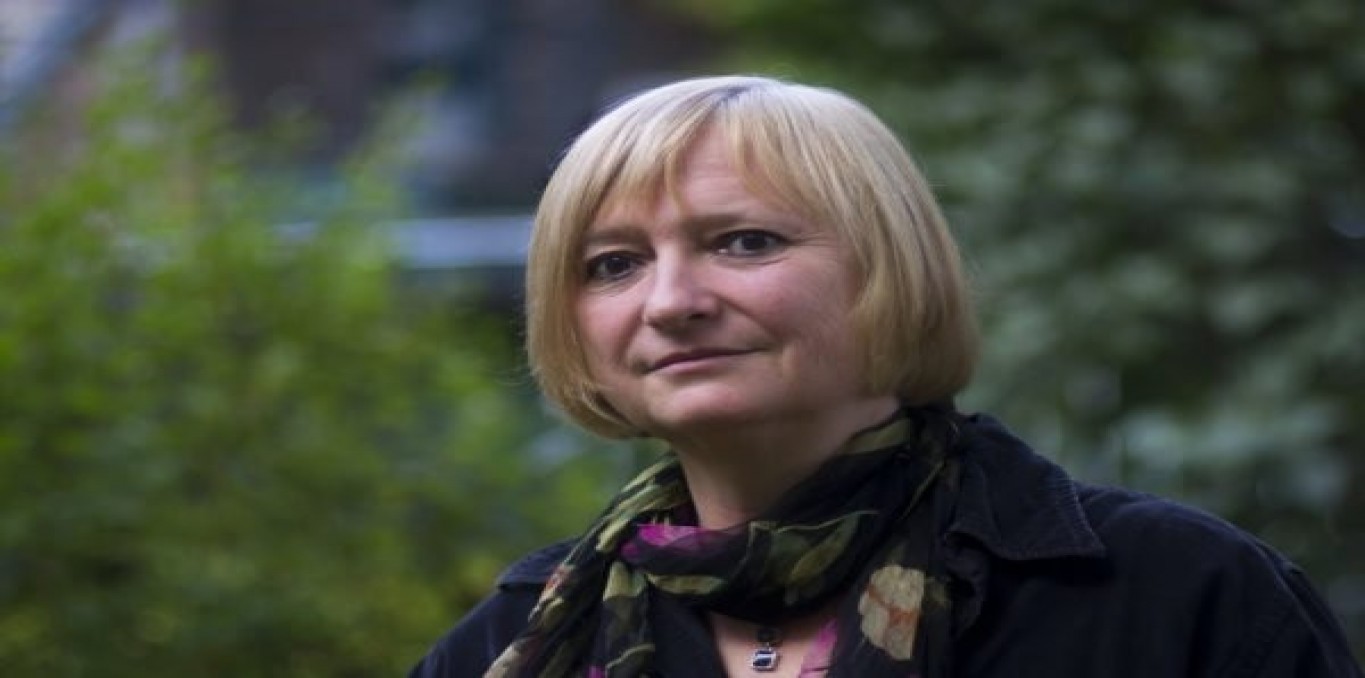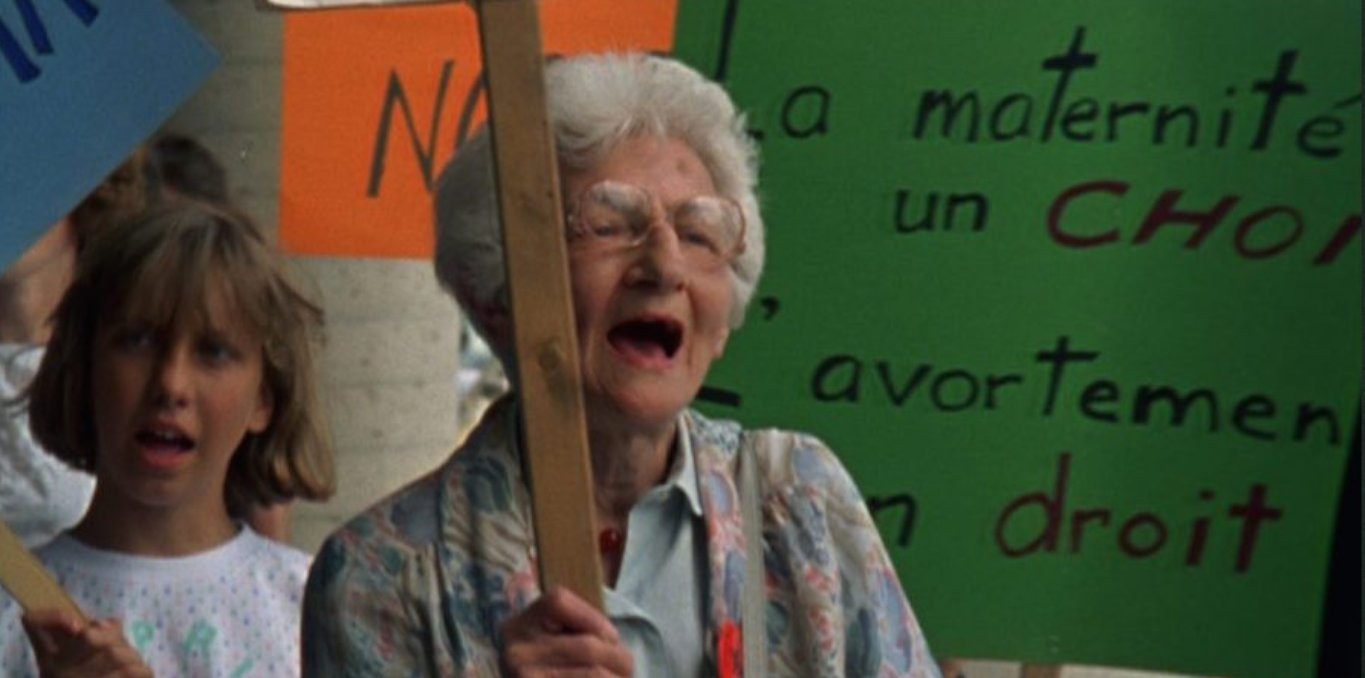Sophie Bissonnette

Sophie Bissonnette is an independent Quebec filmmaker who has been making documentary films since 1979. She co-directed her first documentary, A Wives' Tale, in 1980. It was awarded the prize for Best Quebec feature film of the year by Quebec critics. Since then, with each of her films, she has explored different genres, focusing on women's lives, labor history, and social justice. Notably, she directed Quel numéro What Number? (1985) about the computer revolution and women's work, A Vision in the Darkness (1991) about activist Léa Roback, and Être ou paraître (2010) about the harmful effects of sexist and sexualized images in the media on young people. Sophie Bissonnette is also highly involved in the cultural community, promoting documentaries, auteur films, and women's cinema. She is a co-founder of RIDM and Réalisatrices Équitables.
Related to this realisator

A Vision in the Darkness
Léa Roback, sa vie, son action, son engagement. À travers les « lumières » d’une militante québécoise juive, Léa Roback, féministe, syndicaliste, pacifiste et communiste, \_Des lumières dans la grande noirceur\_ propose une vision moderniste de l’histoire du Québec, du début du XXe siècle jusqu’aux années duplessistes de la Grande Noirceur.

« Quel numéro - What number ? » ou le travail automatisé
« Quel numéro - What number ? » ou le travail automatisé
Duration: 1h21The film deconstructs the promises of the 1980s "computer revolution" by placing humans, rather than machines, at the center of the narrative. Service sector workers—secretaries, telephone operators, cashiers, and postal employees—find themselves confronted with the arrival of new technologies that reshape their workplace. With lucidity, humor, and emotion, they share their experiences of these...

A Score for Women's Voices
Subscription access
Between March and October 2000, millions of people around the world took to the streets to denounce poverty and violence against women. The historic World March of Women was a bold initiative of the Québec Federation of Women and represented a turning point in global solidarity. Inspired and carried by this movement, _A Score for Women's Voices_ takes us, to the rhythm of a song, to relive the ...

A Wives' Tale
A film about the women who supported the 1978 miners strike against Inco, the multinational which owned the nickel mines in Sudbury, Ontario. As the women became increasingly involved in the strike, they questioned more and more their traditional supportive role. This provoked many heated discussions among the women and obviously not without upsetting husband, family, union - and company...

A Vision in the Darkness
Léa Roback, sa vie, son action, son engagement. À travers les « lumières » d’une militante québécoise juive, Léa Roback, féministe, syndicaliste, pacifiste et communiste, *Des lumières dans la grande noirceur* propose une vision moderniste de l’histoire du Québec, du début du XXe siècle jusqu’aux années duplessistes de la Grande Noirceur.

A Vision in the Darkness
Léa Roback, sa vie, son action, son engagement. À travers les « lumières » d’une militante québécoise juive, Léa Roback, féministe, syndicaliste, pacifiste et communiste, \_Des lumières dans la grande noirceur\_ propose une vision moderniste de l’histoire du Québec, du début du XXe siècle jusqu’aux années duplessistes de la Grande Noirceur.

« Quel numéro - What number ? » ou le travail automatisé
« Quel numéro - What number ? » ou le travail automatisé
Duration: 1h21The film deconstructs the promises of the 1980s "computer revolution" by placing humans, rather than machines, at the center of the narrative. Service sector workers—secretaries, telephone operators, cashiers, and postal employees—find themselves confronted with the arrival of new technologies that reshape their workplace. With lucidity, humor, and emotion, they share their experiences of these...

A Score for Women's Voices
Subscription access
Between March and October 2000, millions of people around the world took to the streets to denounce poverty and violence against women. The historic World March of Women was a bold initiative of the Québec Federation of Women and represented a turning point in global solidarity. Inspired and carried by this movement, _A Score for Women's Voices_ takes us, to the rhythm of a song, to relive the ...

A Wives' Tale
A film about the women who supported the 1978 miners strike against Inco, the multinational which owned the nickel mines in Sudbury, Ontario. As the women became increasingly involved in the strike, they questioned more and more their traditional supportive role. This provoked many heated discussions among the women and obviously not without upsetting husband, family, union - and company...

A Vision in the Darkness
Léa Roback, sa vie, son action, son engagement. À travers les « lumières » d’une militante québécoise juive, Léa Roback, féministe, syndicaliste, pacifiste et communiste, *Des lumières dans la grande noirceur* propose une vision moderniste de l’histoire du Québec, du début du XXe siècle jusqu’aux années duplessistes de la Grande Noirceur.
